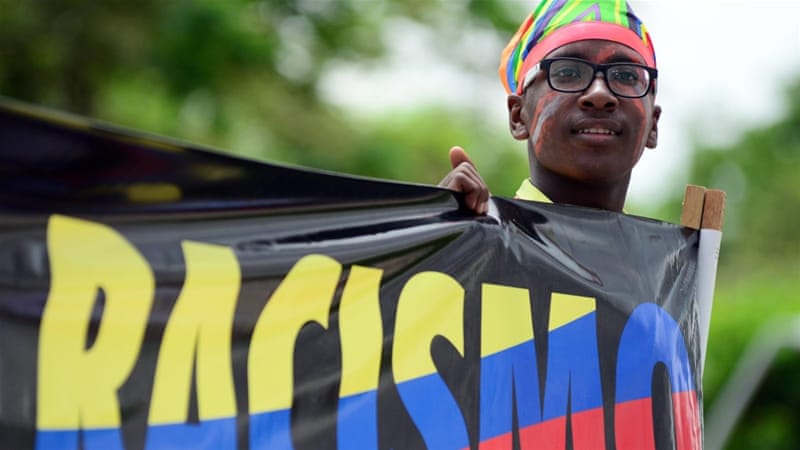
Happy Colombian Independence Day. Let's Reflect on Afro-Colombians in History.
Colombia is a land that’s soil is rich in its organic matter. On a day to celebrate, let's reflect on an undeniably dark part of the past and present.
July 20 is Colombian Independence Day. In 1810, the people of Colombia were freed after protestors populated the streets against the Spanish rule, yet another historical example that protests do work in igniting change.
In a historical context, enslaved Africans were brought by Spanish colonists to Cartagena during the 16th century. The colonists placed them in plantations for labor after murdering a large number of the indigenous population.
Though the anti-colonial war for liberation of the enslaved Africans was led by Simón Bolívar and Francisco de Paula Santander, slavery was not completely abolished until 1851 — 40 years after the victorious war.
In politics, there is not a lot of Afro-Colombian representation because unfortunately Colombia’s mentality towards equality does not progress.
Juan Jose Nieto Gil was born in Baranoa, Colombia and was the first and only president to date that was of African descent.
Nieto Gil had a short reign in 1861. In November of 1860, he took control of the Northern part of Colombia with the objective to end conflict in the country.
On January 25, 1861 there was a war that forcibly removed and overthrew then-President Mariano Ospina Rodriguez led by General Thomas Cipriano de Mosquera.
When Mosquera did not go to the Presidential Palace after Rodriguez’s deposition, Nieto Gil became the president of Colombia.
His reign lasted just six months before General Mosquera stepped in on July 18, 1861 and also forced him out of the seat.
He died five years later in Cartagena.
After his death, he was rarely remembered because of the historic racism that still exists in Colombia today. Nieto Gil’s presidential portrait was shopped to Paris and changed to make his skin look white.
Colombia historian and sociologist Orlando Fals Borda rediscovered the late President’s African-ancestry in the 1970’s. Fals Borda found Nieto Gil’s original portrait in the Palace of Cartagena and began a campaign to present it nationally.
Juan Manuel Santos, former Colombian president who received a Nobel Peace Prize in 2016, unveiled a replica of the original portrait on Aug. 2, 2018.
It is unsurprising that to this day, the most marginalized communities in the country are where Afro-Colombians reside. There are significant disparities among these communities in regards to their access to essential services like water and sanitation.
Institutionalized and systemic racism continues to permeate the Colombian society.
The government tends to ignore these populations of people, and refuses to invest in infrastructure for the Afro-Colombian community.
Many of the Afro-Colombian communities are crime-ridden and have very little resources.
The limited options leave these people vulnerable. They end up seeking violence, drug trafficking, sex traficking, joining the guerillas or another paramilitary group, and other dangerous opportunities.
The Afro-Colombian community along with the indegenous population are the ones most affected by the conflicting violence between the guerilla, paramilitary and the government despite the Peace Treaty Juan Manuel Santos signed with FARC rebels in 2016.
Over the last 500 years, Afro-Colombian culture has existed, and is now in jeopardy again as palm-oil plantations spring up, threatening to mass expand and further endanger these communities’ territories.
So yes, it is Colombian Independence Day. 210 years of freedom from Spaniard ruling.
But what is freedom if there are people trapped in poverty and no governmental help in a classist society?











LEAVE A COMMENT: